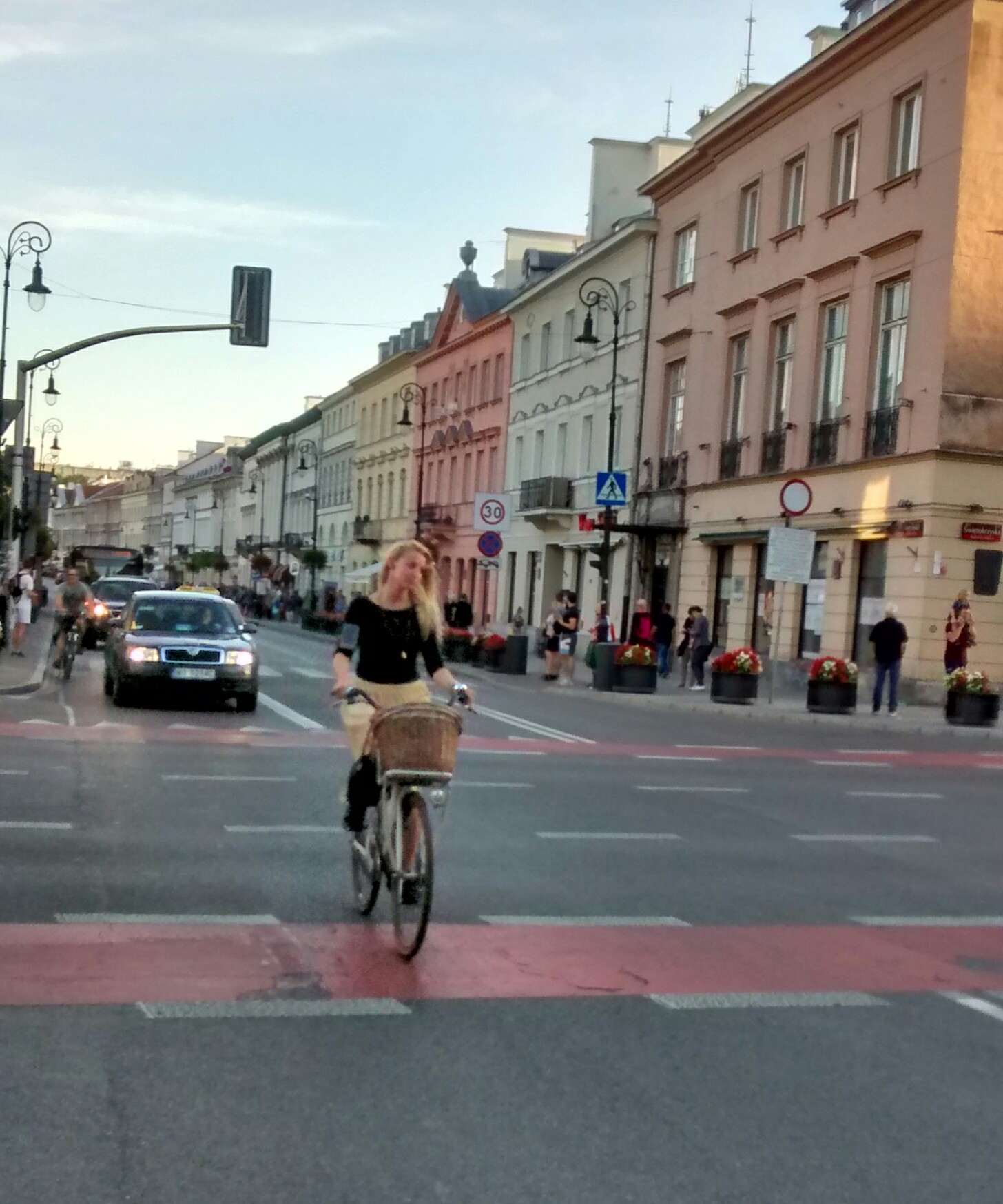
I recently spent two weeks in Poland, the country from which I emigrated at age 20, long before anyone could imagine the Solidarity movement and the demise of the soviet bloc. I have visited Poland several times since the disintegration of the soviet bloc, watching the remarkable changes taking place. During the first decade of the transition Poland was busy creating institutions and infrastructure necessary for a functioning democracy and market economy, which it accomplished amazingly well. Once this foundation was laid the country’s psyche turned toward “catching up” with the West, especially after the ascension to the EU. The term “catching up”, which frequently appeared in my many conversations with friends and acquaintances, essentially means increasing consumption as manifested in material well-being and personal comfort.
The most visible rapid change in the Warsaw area, where I spend most of my time, has been a huge increase in the number of private cars and appearance and rapid spread of US-type suburbs: single family homes with generous yards, far enough from stores and other amenities to require driving. Despite the horrendous traffic jams that ensued many young families with money are choosing to live in these developments. The second big change was to embrace leisure travel to distant places around the globe. Hiking trails in the national parks in Poland are half-empty while people are heading abroad. It seems as though the pent-up demand — built during the four decades of enforced living in dreary-looking soviet-style apartment blocks and restrictions on international travel — has simply exploded. The third, closely related, change I observed was the rising tempo of life. Where once upon the time people spent their abundant leisure time on social gatherings, cinema and theater, books and strolls in the glorious Warsaw parks, there is now constant rush. So many things to do, so much money to be made, so many goods to acquire, and so little time to get it all accomplished!
The educated Polish middle class indeed uncannily resembles its US counterpart: helicopter mothers and their rushed, over-enriched children, the fear of kidnappers and sexual perverts, the relentless barrage of advertising, the positional consumption, the chain stores and shopping malls devouring small local shops where the owner knows your name. I watched on TV a discussions about grade inflation in schools, driven by parents who challenge teachers’ authority in this increasingly transaction-oriented culture. I could practically feel the upward creep of Poland’s ecological footprint, day by day, month by month. I could see the loss of unhurried leisure time all around me and the beast of anonymity taking over individual lives.
In my sad wisdom built on experience I gently pointed out to the young suburbanites that they will spend the best years of their lives chauffeuring their children, that their social life has already lost spontaneity (which they told me about), that their kids will never experience the joy of dropping by at a friend’s house without an appointment as their parents had in their own youth, that the superb public transit, impressive bicycle lanes, and plenty of green space in Warsaw can deliver great quality of life to those who live in the city. I pointed out that low quality merchandise in shopping malls is boringly the same around the world. I pointed out the dense network of cafes, beer gardens and restaurants in the city, teaming with life and laughter. My words fell on deaf ears. More and bigger is better.
The truth is that talking about sustainable consumption to people in transition economies such as Poland is pretty much meaningless. There are of course eco communities in Poland, which our SCORAI webmaster Robert Orzanna recently visited. And I met a Polish scholar Barbara Jaros, a SCORAI subscriber, who is doing research on sustainable consumption. But these are fringes to the mainstream culture. Many educated Poles (I came in contact only with that class) want something akin to the traditional American dream: a suburban home or, for the urbanites, a second home in the country, plenty of living space, abundant material goods. And why not? This is a seductive vision, the price of which – in the loss of spontaneity, leisure time, and financial freedom — becomes apparent only years or decades later. A taxi driver complained to me about people rushing all the time and being obsessed with making money but when I remarked that it is the same in the US he became silent, clearly not believing me. The US has been an aspirational model in Poland for so long and for so many people that a talk about its shortcomings is not credible.
Consumer society continues its relentless march across the globe. I do not know how it can be stopped or slowed down. But it seems to me that the place to start is to come up with a different and compelling vision of good life, one in which community ties, more leisure time and less personal debt are truly irresistible aspirations. The vision will not suffice. It will need to be accompanied by public services, amenities and housing consistent with the vision. In my next blog I will describe an interesting experiment in reframing sustainable lifestyles in a project in Hungary.



Comments are closed.